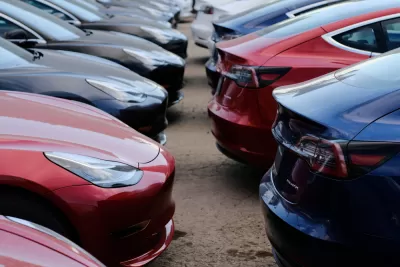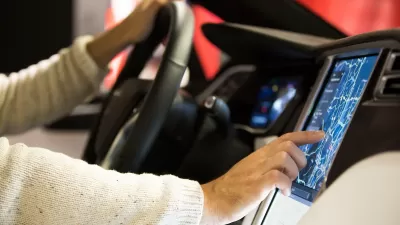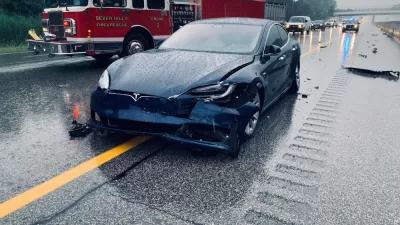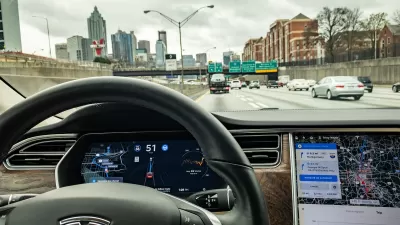Federal regulators are asking the carmaker to update the software on vehicles equipped with FSD due to its poor safety record.

Months after California banned Tesla from using the term ‘full self-driving’ or FSD, citing safety concerns, the National Highway Traffic Safety Administration (NHTSA) directed the company to recall 362,758 vehicles equipped with the software. Richard Lawler reports on the story for The Verge.
Documents filed regarding the recall (included below) don’t call out specific incidents, but NHTSA’s concerns are listed as focusing on four specific situations that can happen on the road, like navigating intersections during a “stale” yellow light, how long cars stop at a stop sign when the intersection is clear, how they adjust speed while driving in areas where the speed limit is changing based on road signs the car detects and settings put in place by the driver, and how the cars change lanes to get out of a turn-only lane.
While FSD requires the driver to “stay fully engaged” in its operation, “FSD-equipped Tesla vehicles will speed up and slow down on their own, make turns — including unprotected left turns, which are extremely difficult for automated systems — and recognizes traffic signals and other road signs.”
Tesla says it will implement a software update to address the NHTSA’s concerns, which won’t require car owners to bring the cars to a dealership. In addition to the recall, “NHTSA has been investigating Tesla’s driver-assist technology for several years, focusing specifically over a dozen incidents in which Tesla vehicles equipped with Autopilot crashed into stationary emergency vehicles. That investigation is much more expansive, covering up to 830,000 vehicles.”
FULL STORY: Tesla recalls 362,758 vehicles equipped with Full Self-Driving beta for ‘crash risk’

Alabama: Trump Terminates Settlements for Black Communities Harmed By Raw Sewage
Trump deemed the landmark civil rights agreement “illegal DEI and environmental justice policy.”

Study: Maui’s Plan to Convert Vacation Rentals to Long-Term Housing Could Cause Nearly $1 Billion Economic Loss
The plan would reduce visitor accommodation by 25% resulting in 1,900 jobs lost.

Why Should We Subsidize Public Transportation?
Many public transit agencies face financial stress due to rising costs, declining fare revenue, and declining subsidies. Transit advocates must provide a strong business case for increasing public transit funding.

Wind Energy on the Rise Despite Federal Policy Reversal
The Trump administration is revoking federal support for renewable energy, but demand for new projects continues unabated.

Passengers Flock to Caltrain After Electrification
The new electric trains are running faster and more reliably, leading to strong ridership growth on the Bay Area rail system.

Texas Churches Rally Behind ‘Yes in God’s Back Yard’ Legislation
Religious leaders want the state to reduce zoning regulations to streamline leasing church-owned land to housing developers.
Urban Design for Planners 1: Software Tools
This six-course series explores essential urban design concepts using open source software and equips planners with the tools they need to participate fully in the urban design process.
Planning for Universal Design
Learn the tools for implementing Universal Design in planning regulations.
Caltrans
Smith Gee Studio
Institute for Housing and Urban Development Studies (IHS)
City of Grandview
Harvard GSD Executive Education
Toledo-Lucas County Plan Commissions
Salt Lake City
NYU Wagner Graduate School of Public Service





























